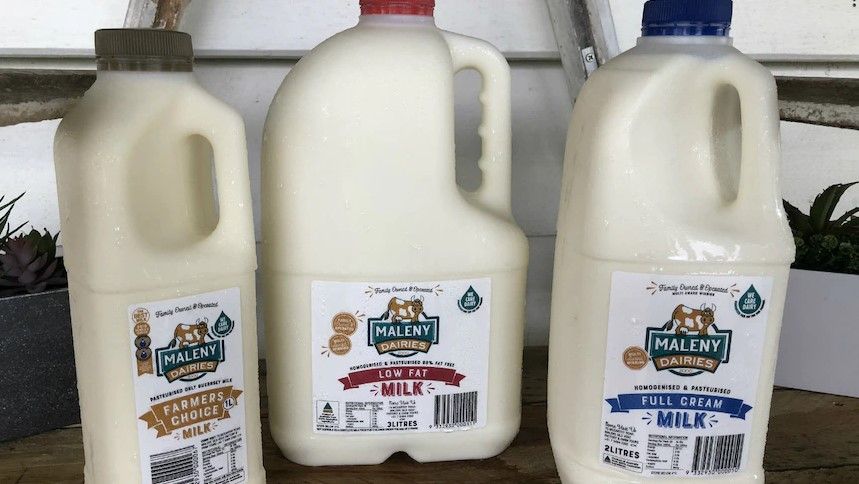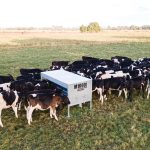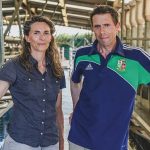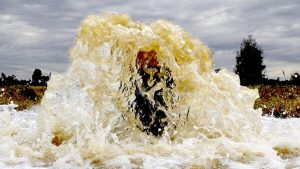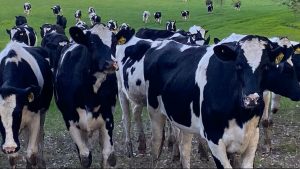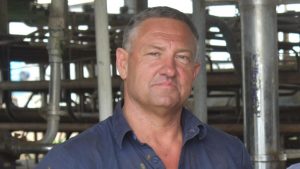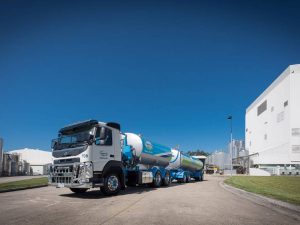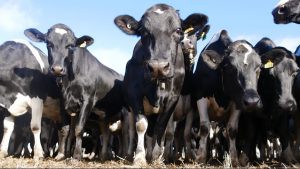
Maleny Dairies general manager Peter Falcongreen said in the past 14 months the family-owned factory outlaid $150,000 to exceed carbon neutral standards by overcompensating for the 2,361 tonnes of carbon emissions it produced.
About $36,000 was spent on two carbon offset projects — a native forest regeneration project in Queensland’s Quilpie region and a project to stop deforestation in Papua New Guinea.
The remainder went to its “climate active” registration and consultants.
A state of carbon neutral occurs when net greenhouse gas emissions are equal to zero, but carbon positive means going beyond this — making additional positive contributions to the environment.
“This is an extremely expensive exercise, but it is in response to a lot of our customers saying ‘what are you doing about the environment? What are you doing about carbon emissions? What are you doing about water management? What are you doing about fertiliser into the rivers?’,” Mr Falcongreen said.
“And we’ve got a lot of people saying ‘you know, I’m no longer drinking dairy because the methane the cows produce converts to carbon’.”
The company said millions of dollars more will need to be spent long-term to install solar panels and improve efficiencies.
“We’re fourth-generation farmers and we’ve been able to do that because the land and the environment have been good to us,” Maleny Dairies’ owner Sally Hopper said.
“We want to nurture those surrounds so we are becoming more proactive in how we operate in a sustainable way.
The Australian red meat industry has set a target to be carbon neutral by 2030, aiming to have no net release of greenhouse gas emissions from beef, lamb, and goat production, including lot feeding and meat processing.
In contrast, Dairy Australia’s commitment is a 30 per cent reduction by 2030, although the nation’s dairy industry is already in the global top 10 for lower emissions.
Dairy accounts for about 2 per cent of national greenhouse gas emissions and 12.5 per cent of agricultural emissions.
The manufacturing process represents just 5 per cent of the dairy industry’s emissions.
Testing times
To achieve carbon positive status, Mr Falcongreen said Maleny Dairies had bought a farm to test its emissions reduction strategies before asking suppliers to change their processes.
“I know how challenging it has been for the factory. We’ve spent the last 14 months trying to get people to show us what to do, as no-one has done this.”
Maleny Dairies sources milk from ten farms and has spent more than $10 million upgrading its factory, installing robots on the packing line, and making its own bottles.
It has also trialled using multi-species pasture mixes including cereals, legumes, grasses, and brassicas to cut down on chemical fertilisers, increase production, and decrease feed costs.
Mr Falcongreen said whether costs would be passed on to the customer would depend on economies of scale.
“If we can do it with our model and show that the public are going to respond by either buying more of our milk or paying more, that’s the cost of doing this for the environment,” Mr Falcongreen.
“We could just do nothing but that’s not who we are as a company.”
A Victorian dairy farm is aiming to be the world’s first carbon neutral dairy farm, but it is Denmark and Sweden currently leading the way in environmentally-friendly dairy processing.
